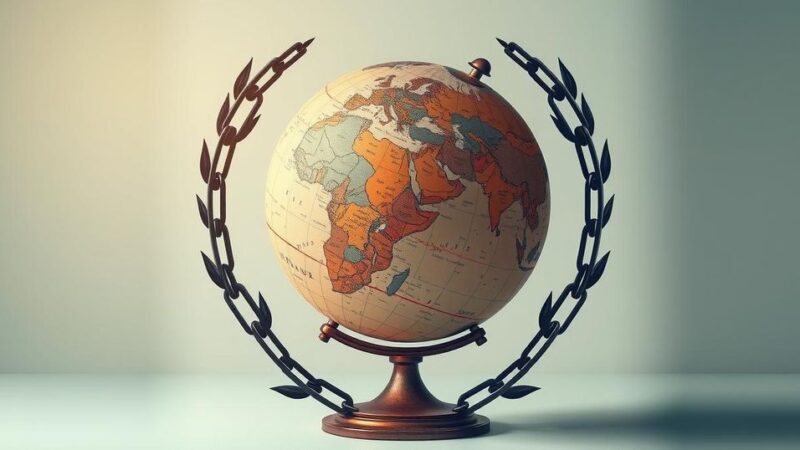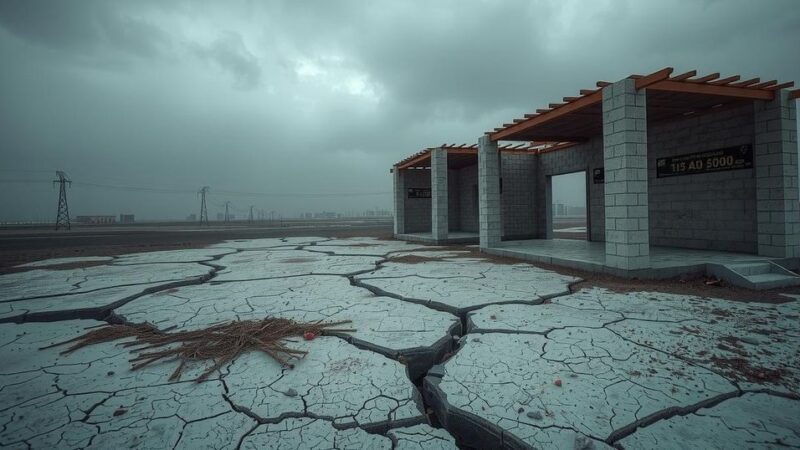Israeli Prime Minister Netanyahu signals support for Trump’s plan to relocate Palestinians from Gaza, discussing this with U.S. Secretary of State Rubio amid concerns over upcoming ceasefire negotiations. Rights groups criticize the plan for potential coercion. Regional leaders oppose mass displacement amid ongoing conflict with Hamas, complicating pathways to peace and stability in the region.
Israeli Prime Minister Benjamin Netanyahu recently indicated his support for U.S. President Donald Trump’s proposal to relocate the Palestinian population from Gaza, labeling it as a feasible option to create a better future for the region. This statement was made during discussions with U.S. Secretary of State Marco Rubio, who is touring the Middle East. Rubio’s visit, marked by his endorsement of Israel’s objectives in Gaza, has renewed skepticism about the sustainability of the current ceasefire, particularly as further discussions on its next phase remain pending.
Netanyahu has asserted that any emigration from Gaza must be voluntary, despite criticism from human rights proponents who deem the proposed relocation as potentially coercive given the extensive devastation inflicted on the territory. Trump’s plan controversially stipulates that the Palestinians would forfeit their right of return under U.S. management of Gaza. Netanyahu emphasized a shared strategy with Trump to address the situation and expressed a dire need for Hamas to release hostages taken during the conflict that commenced on October 7, 2023.
As negotiations surrounding the ceasefire evolve, Netanyahu’s office announced an imminent meeting of Israel’s security cabinet to delve into the next phase. Concurrently, America has resumed sending military supplies, including large munitions, following a previously halted shipment due to concerns about civilian casualties in Gaza. The 500-day mark of the ongoing conflict signals Netanyahu’s readiness to intensify operations, raising alarm over the potential fate of remaining hostages.
Rubio stated that enduring peace is unattainable with Hamas maintaining any governance capability, thus reinforcing the notion of eradicating the militant group. Although Hamas has reclaim control during the recent ceasefire, Netanyahu has still proposed that they surrender, which has been firmly rejected by the group. The spokesman for Hamas reiterated a desire for recognized Palestinian governance in Gaza.
Additionally, Rubio’s statements suggested that pressure could be applied to Arab states to devise their strategies for the post-war landscape that align with Israeli expectations. He indicated that it is not feasible for American troops to confront Hamas, urging regional nations to step up their response to the conflict. However, Arab leaders face significant challenges from their populations regarding the potential expulsion of Palestinians from Gaza.
Egypt is proactively working on an alternative proposal focused on reconstruction efforts without displacing the local populace. The realization of a mass Palestinian exodus may jeopardize Egypt’s longstanding peace agreement with Israel. Both Saudi Arabia and the UAE have also voiced their opposition to any plan that involves the mass exodus of Palestinians, emphasizing the urgency for a resolution that maintains their domestic stability.
The impending Arab summit in Egypt will serve as a platform for discussions on these pressing issues. Many Arab and Muslim states condition their backing for Gaza’s future on a return to Palestinian governance and negotiations toward statehood. However, Israel has eliminated the possibility of establishing a Palestinian state and has ruled out any role for the Palestinian Authority in Gaza, a position that complicates the landscape for future reconciliations.
In summary, Netanyahu’s endorsement of Trump’s Gaza relocation proposal has reignited tension regarding the Israeli-Palestinian conflict. This comes as negotiations over the ceasefire’s next phase remain stagnant, while regional leaders express their opposition to the potential mass displacement of Palestinians. The geopolitical complexity continues to evolve, presenting significant challenges for both Israeli and Arab leaders as they navigate the requirements for a sustainable peace moving forward.
Original Source: www.pbs.org






